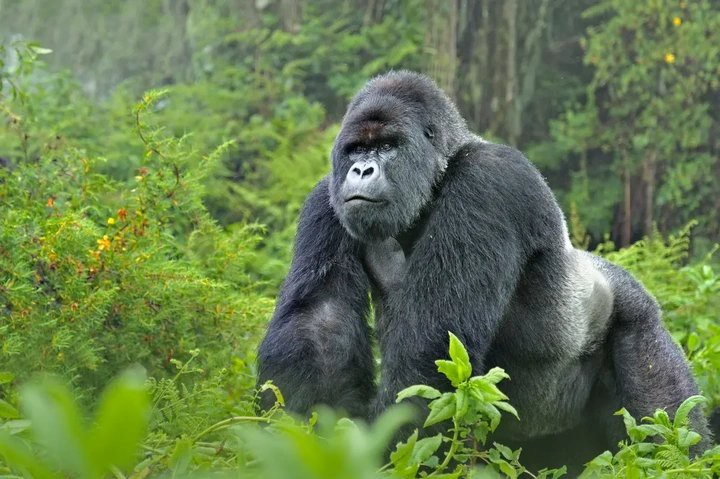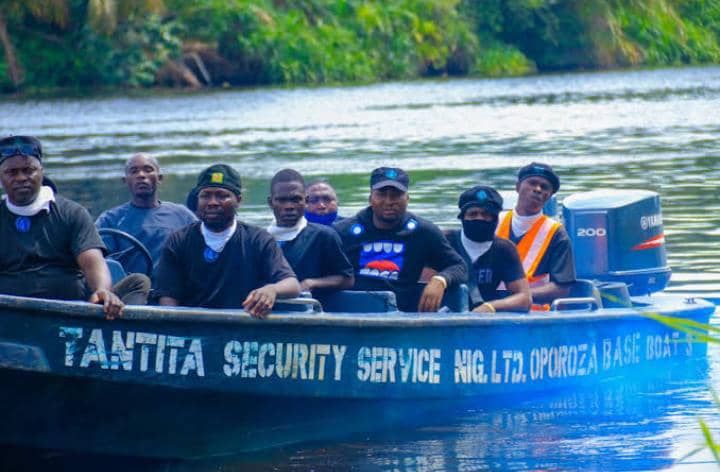Featured
South Africa’s genocide case against Israel: The International Court of Justice explained

In proceedings before the International Court of Justice (ICJ), the Republic of South Africa is alleging that Israel is responsible for violations of the Genocide Convention in respect of its actions taken in Gaza, allegations which Israel rejects.
Cases brought to the ICJ take years to come to judgment. In the meantime, it is open to the parties to seek interim relief – provisional measures. South Africa asked the Court to order nine such measures, including the cessation of military operations, and the Court has now responded to that request.
In its Order of 26 January 2024, the Court recalled the attack of 7 October 2023 on Israel with hostage taking and loss of life, as well as the human suffering, loss of life, displacement of civilians and damage to the infrastructure in Gaza caused by Israel.
The Court ordered:
- Israel must, in accordance with its obligations under the Genocide Convention and in relation to Palestinians in Gaza, ‘take all measures within its power’ to prevent the commission of acts prohibited in the Convention, in particular killings, causing serious physical or mental harm, the deliberate infliction of conditions of life calculated to bring about the physical destruction of the population in whole or in part, and the imposition of measures intended to prevent births;
- Israel must ensure that its military forces do not commit any of the acts mentioned in point 1;
- Israel must take all measures within its power to prevent and punish direct and public incitement to commit genocide;
- Israel must take immediate and effective measures to enable the provision of humanitarian relief to Gaza;
- Israel must take effective measures to prevent destruction of evidence relating to allegations of acts contrary to the Genocide Convention;
- Israel must submit a report to the Court within one month regarding the measures it has taken to give effect to the Order.
Orders 1,2, 5 and 6 above were made by a vote among the judges of 15-2, the two in opposition being judge Sebutinde (of Uganda) and judge ad hoc Barak (of Israel). Orders 3 and 4 were decided upon by all the judges except judge Sebutinde.
The Court also noted that all parties are bound by international humanitarian law; it stated that it was gravely concerned by the fate of the hostages and called for their immediate release.
The provisional measures
The Court has not taken a decision on whether or not genocide has been committed. Nor has the Court decided whether it even has jurisdiction to hear the case.
For the purpose of the provisional measures order, the ICJ only had to decide whether it had prima facie jurisdiction – at first glance – as well as:
- Whether there was a link between the measures requested and the rights covered by the case;
- Whether the underlying case was at least plausible;
- Whether there would be irreparable prejudice to the case if measures were not ordered;
- Whether the matter was urgent.
In taking their decision of 26 January, the Court described how it regarded all these conditions as being met.
The Court also decided that South Africa prima facie has ‘standing’ to bring the case, that is, it has the right to do so under the Genocide Convention, recalling that the obligations under the Convention are erga omnes: they concern the international community as a whole.
South Africa had requested the Court to order a ceasefire. The Court did not do so. And the Court did not follow the language, nor in some case the content, of the other requests made by South Africa.
The provisional measures are legally binding on Israel and there is no right of appeal. There is of course no international police to enforce rulings of the ICJ, but any decisions the Court takes have at least reputational, political and diplomatic impact including in the court of public opinion. It would also be possible to take the issue to the UN Security Council.
What is the International Court of Justice?
The Court was established by the Charter of the United Nations. It has 15 judges, who are voted into office by the UN General Assembly and Security Council. If a judge of the nationality of one of the parties to a case is not on the Court, the party may nominate its own judge ad hoc for the purpose of the case. Here, both South Africa and Israel have chosen judges, who are now sitting on the Court.
The Court deals with disputes between states, or issues advisory opinions if so requested by bodies such as the UN General Assembly. States are not obliged to submit to the Court unless they have agreed to do so – either in relation to a specific case, or, if they have agreed beforehand to do so, for all cases or sometimes in relation to specified kinds of cases.
The present case is brought under the 1948 Genocide Convention, a treaty to which South Africa and Israel, like most of the world, are parties and under its provisions have agreed to send any disputes about the Convention to the Court. Israel argues that there is not a ‘dispute’ and that therefore the Court does not have jurisdiction.
What is genocide?
It was Rafael Lemkin, a Polish Jew, who was credited with coining the term ’genocide’. Genocide is ‘a denial of the right of existence of entire human groups, as homicide is the denial of the right to live of individual human beings’ (General Assembly resolution 96(1)). Genocide was recognized as a separate international crime after the Nuremberg trials, and it is now incorporated in the 1948 Genocide Convention.
The legal definition of genocide is a narrow one. It comprises ‘any of the following acts committed with intent to destroy, in whole or in part, a national, ethnical, racial or religious group, as such:
(a) Killing members of the group;
(b) Causing serious bodily or mental harm to members of the group;
(c) Deliberately inflicting on the group conditions of life calculated to bring about its physical destruction in whole or in part;
(d) Imposing measures intended to prevent births within the group;
(e) Forcibly transferring children of the group to another group.’ (Article 2)
Incitement, conspiracy and attempt to commit genocide are also prohibited by the Convention (Article 3(c) and (e)).
The crime is one of individual responsibility but there is also an obligation on states; they too can be responsible for genocide. They also have an obligation to prevent and punish genocide by others (Article 1).
Two elements of the crime have to be proved: that an act within the list above was committed, and that it was committed with the intent to destroy a protected group in whole or in part (the genocidal intent).
It is important to remember that a particularly bloody war, in which many war crimes are being committed and many civilians killed, does not amount to the crime of genocide if there is no genocidal intent. On the other hand, if the genocidal intent is present, it would be possible to commit the crime even in the event of only a few deaths, for example.
Court decisions in the past have determined that if the genocidal intent is not clear from the existence of a plan to commit genocide, that intent can be inferred from a perpetrator’s actions – but only if that is the only inference that can properly drawn from those actions.
Has the ICJ dealt with genocide cases before?
A case was brought by Bosnia-Herzegovina in 1993 against the Federal Republic of Yugoslavia (Serbia and Montenegro) (FRY) in relation to acts done against the Muslim population of Bosnia.
Provisional measures were sought and given; they included an order to the FRY to take all measures in its power to prevent the commission of genocide. In relation to the killings in Srebrenica the Court eventually held that genocide had been committed.
There are two other cases pending before the Court that have been brought under the Genocide Convention: the case against Myanmar in respect of their treatment of the Rohingya, brought by Gambia, and the case against Russia, brought by Ukraine, in respect of Russian allegations that Ukraine has committed genocide. In each case provisional measures were ordered.
The ICJ does not try crimes committed by individuals: the ICC does
The Court’s jurisdiction is over states; it does not try individuals who commit crimes: That is the role of criminal courts, including the International Criminal Court (the ICC).
The ICC has investigations ongoing into alleged crimes committed on the territory of Palestine, going back to 2014. Within these investigations it can include crimes associated with the attacks on 7 October 2023 and with the subsequent conflict.
This means that although the ICJ is not able to deal with crimes committed by members of Hamas on that date, those crimes are instead likely to be within the ICC’s investigations. In a statement made on 3 December 2023, the ICC Prosecutor said that the ‘attacks against innocent Israeli civilians on 7 October represent some of the most serious international crimes that shock the conscience of humanity, crimes which the ICC was established to address.’
What will the ICJ do next?
The Court will now set the schedule for the next stages of the proceedings. Because Israel is arguing that the Court does not have jurisdiction, there might be another preliminary phase of the proceedings, to decide on that question. This ‘preliminary objections’ phase will require further written proceedings as well as another oral hearing.
Thereafter, if the Court does decide that it has jurisdiction, the parties will be asked to submit their ‘memorials’ – written statements of their arguments. There will then be another oral hearing and the Court will finally give its judgement. It will be years before this is done – unless of course the Court decides to throw out the case at the preliminary objections stage.
It is open to other states which are parties to the Genocide Convention to intervene to join the case in support of one or other side. For example, in Ukraine v Russia, 32 States are intervening on behalf of Ukraine.
If and when the Court finally gets to the ‘merits’ (or substantive) stage of the proceedings, it will have to take a decision on the South African allegations and Israel’s defence.
The nub of South Africa’s case is that Israel has committed genocidal acts in Gaza and with genocidal intent; its intent is evidenced both by a pattern of conduct and by genocidal speech by political and military leaders and soldiers on the ground; it has also failed to prevent and punish incitement to genocide.
Israel on the other hand has stated that acts committed during Hamas’ attack on 7 October 2023 ‘may be seen as the real genocide in this situation’. Israel is arguing that it is entitled to carry out measures to defend itself; the acts and statements referred to by South Africa were not part of government or military policy and it has no genocidal intent.
Genocide is notoriously difficult to prove, because of the need to show or infer a genocidal intent. While the deaths of so many civilians in Gaza have given rise to allegations that Israel is violating international humanitarian law, it is not possible to bring such allegations before the ICJ since there is no treaty equivalent to the Genocide Convention which confers jurisdiction on the Court. War crimes will be for criminal courts to investigate.
Credits: Chatamhouse
For Diaspora Digital Media Updates click on Whatsapp, or Telegram. For eyewitness accounts/ reports/ articles, write to: citizenreports@diasporadigitalmedia.com. Follow us on X (Fomerly Twitter) or Facebook












